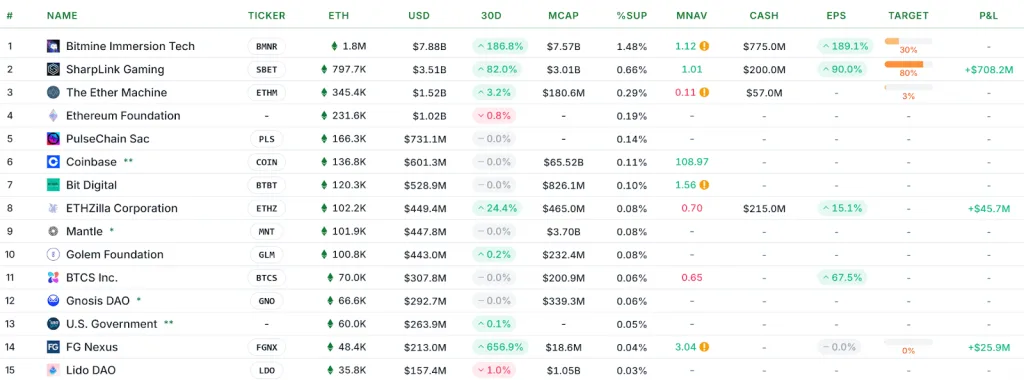Yunfeng Financial Invests $44M in ETH to Drive Web3 Growth

- Yunfeng’s $44M Ethereum purchase marks one of Asia’s largest corporate crypto moves.
- Ethereum’s role in Web3 and tokenization makes it central to Yunfeng’s long-term strategy.
- Hong Kong emerges as a digital asset hub as listed firms integrate crypto into core reserves.
Yunfeng Financial Group, a Hong Kong-listed firm affiliated with Alibaba founder Jack Ma, has acquired 10,000 Ethereum, worth approximately $44 million. The deal was disclosed in a filing on Tuesday and is considered to be the largest ETH acquisition by a publicly traded Asian company this year, showcasing the rise in institutional interest.
The purchase was processed using the firm’s cash reserves, and this move aligns with its long-term growth plan. The company is moving into Web3, tokenized assets, digital money, and artificial intelligence. Ethereum would be recorded as an investment on its balance sheet and included within reserve holdings.
Yunfeng Backs ETH for Long-Term Plan
Yunfeng said the holding will support tokenization of real-world assets and provide infrastructure for Web3 adoption. Executives noted that Ethereum may find use in insurance products and wider fintech solutions, emphasizing that the distribution is strategic and not speculative in the short run.
The board advised shareholders of the risks connected to digital assets, noting that cryptocurrency markets continue to experience volatility. Additional growth of ETH holdings would be reliant on regulatory changes and market dynamics. The local securities regulator and the Hong Kong Stock Exchange had both disclaimed the filing, and neither had involved itself with the filing.
The fact that Ethereum became one of the reserves in Yunfeng points to a larger institutional trend. Many firms have relied on Bitcoin for treasury reserves. Ethereum, however, offers a different kind of value. Its utility lies in its use of smart contracts and tokenization as a financial infrastructure. The decision made by Yunfeng indicates an emerging concern that ETH is not simply a tradable asset.
Institutional Ethereum Reserves on the Rise in Asia
According to the Strategic ETH Reserve data, about 4.44 million ETH is owned by structured entities worth nearly $19 billion, representing 3.67% of the outstanding supply of Ethereum. Bitmine Immersion Tech currently has custody of 1.8 million ETH worth an estimated $7.7 billion, making up over 40% of institutional holdings.
SharpLink Gaming holds 797,700 ETH valued at $3.4 billion. The Ether Machine manages 345,400 ETH, while the Ethereum Foundation keeps 231,600 ETH. Coinbase controls 136,800 ETH, linked to customer accounts and staking. While the concentrated reserves highlight the growing adoption, it also sheds light over liquidity concerns.

Source: StrategicETHReserve
Although Yunfeng’s $44 million purchase is small compared with global leaders, its importance in Hong Kong is clear. The city is working to be a digital asset hub. Yunfeng’s entry strengthens that effort and highlights the role of institutions in giving Ethereum credibility within regulated finance across Asia.
Related: Metaplanet Boosts Bitcoin Strategy Through $1.2B Share Sale
Japan is also pushing ahead with corporate adoption of crypto. Gumi hopes to gain $17 million in XRP by 2026. Earlier this year, the company invested $6.58 million in Bitcoin and started a BTC lottery among its stockholders. In August, five Bitcoin investments by Japanese companies were announced, boosting the total to 156.79 BTC while Metaplanet had invested 103 BTC worth $11.7 million, bringing its total reserves to 18,991 BTC, which is nearing $2 billion. The company also secured a spot in the FTSE Japan Index, demonstrating that crypto assets are entering mainstream finance.
The acquisition of Ethereum by Yunfeng is not just about diversification of the balance sheet but the shift towards identifying Web3 as core infrastructure in Asia. The move positions ETH in contrast to Bitcoin-led initiatives, giving the network a lead in its institutional credibility.




